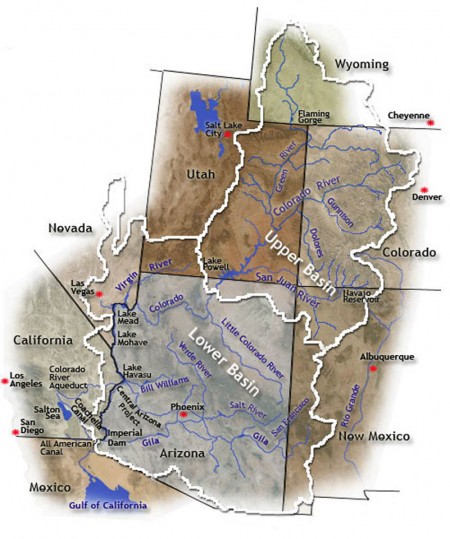Scientists on Thursday released the results of a first-of-its-kind study that finds the seven states of the drought-stricken Colorado River Basin are depleting groundwater reserves at a rapid rate. That threatens the future of a river that supplies water to 40 million people and irrigates 4 million acres of farmland.
Scientists at the University of California, Irvine, and NASA analyzed data from a satellite that measures underground water reserves to calculate that the Colorado River Basin has lost 65 cubic kilometers—that’s 17.3 trillion gallons—of water between December 2004 and November 2013. That represents twice the capacity of the United States’ largest reservoir, Lake Mead in Nevada. Most worrying, 75 percent of the loss came from groundwater supplies.
Scientists at the University of California, Irvine, and NASA analyzed data from a satellite that measures underground water reserves to calculate that the Colorado River Basin has lost 65 cubic kilometers—that’s 17.3 trillion gallons—of water between December 2004 and November 2013. That represents twice the capacity of the United States’ largest reservoir, Lake Mead in Nevada. Most worrying, 75 percent of the loss came from groundwater supplies.
“We don’t know exactly how much groundwater we have left, so we don’t know when we’re going to run out,” Stephanie Castle, the report’s lead author and a water resources specialist at UC Irvine, said in a statement. “This is a lot of water to lose. We thought that the picture could be pretty bad, but this was shocking.”
(Read the rest of the story here…)
